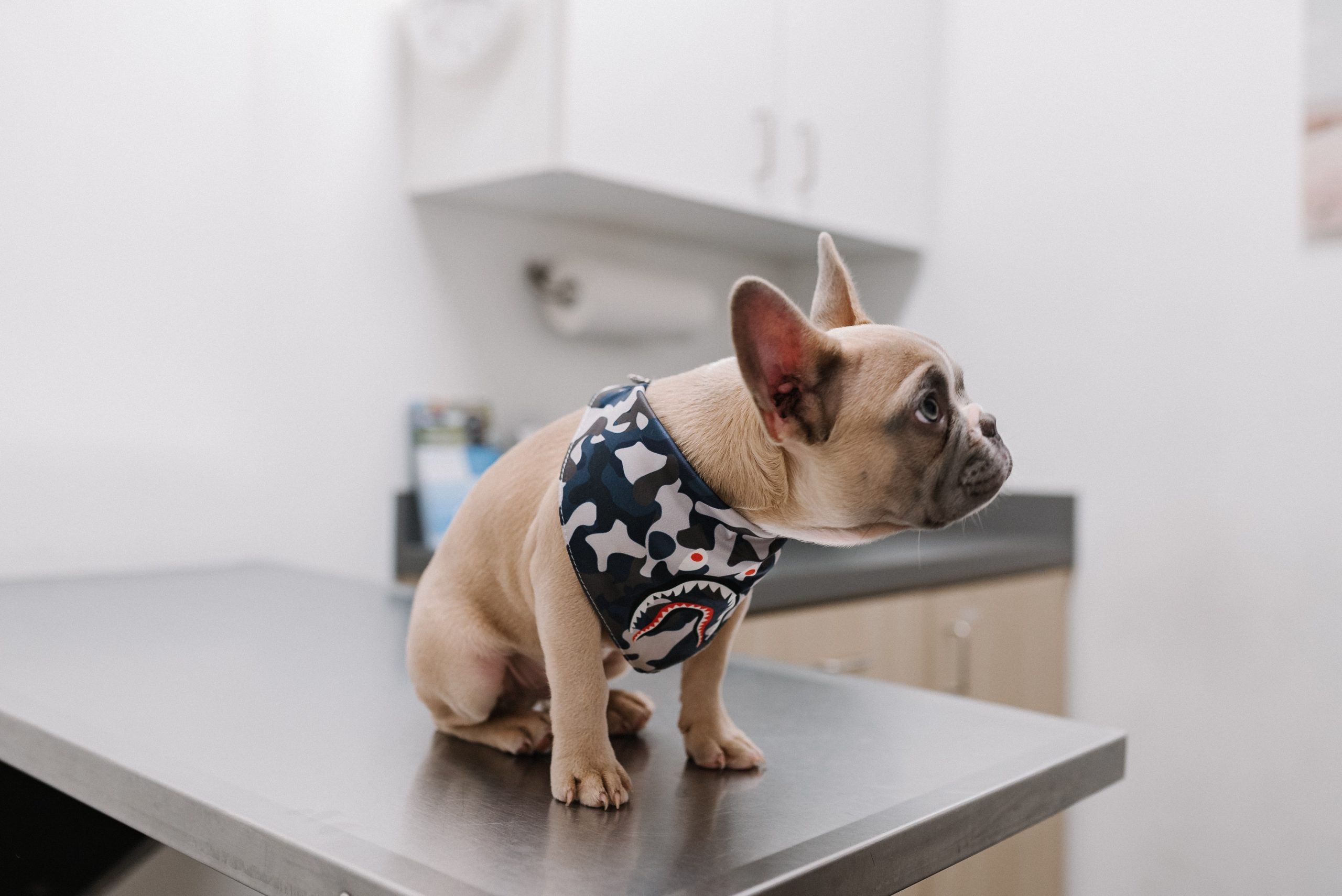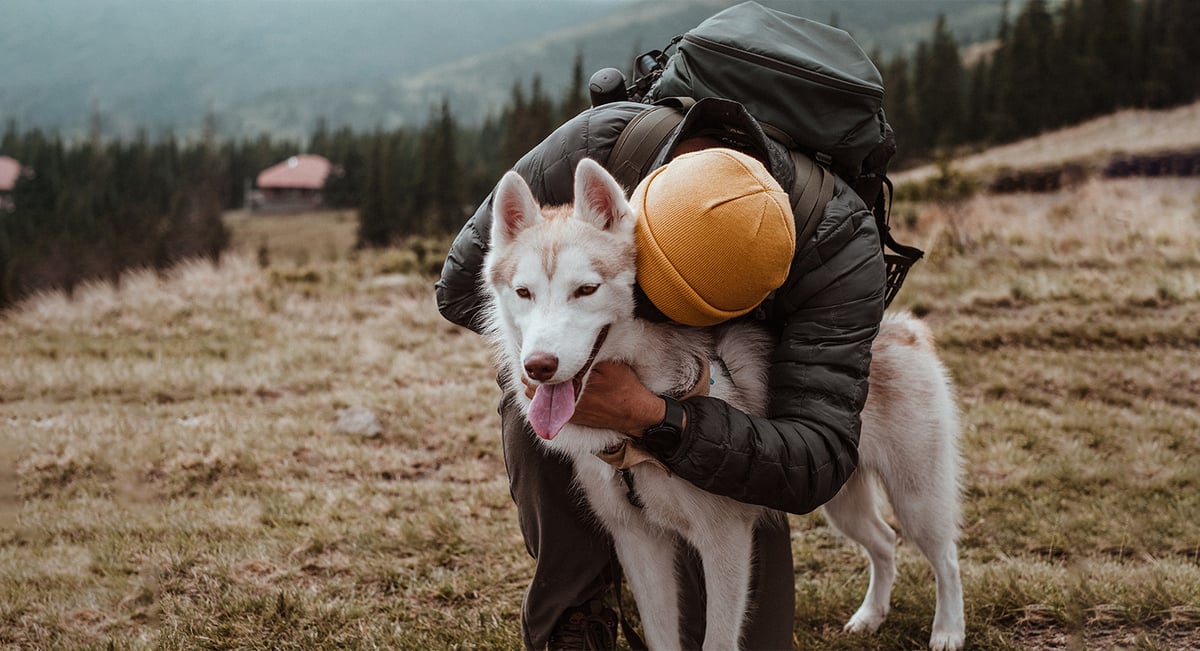Dealing with Pet Loss

by Rae Mazzei, Clinical Health Psychologist, owner of Evolutions Behavioral Health.
Losing a pet can be devastating. Our animal friends provide us with so much during their short life. They give us companionship, emotional support, and even physical guidance. Everyone has a unique relationship with their pet. For some, the loss of a pet is fairly unemotional and recovery is quick. For others, a pet death can trigger intense feelings of grief. Whatever your experience, you may find you need help dealing with this difficult time.
5 Tips to Heal After the Loss of a Beloved Pet

Healing After the Loss of a Beloved Pet
Terri Lynn Chaplin
Many pet owners cannot imagine how life was before they had their lovable pet around. However, losing a pet is an experience that many of us, unfortunately, will face at some point in our lives. Our furry companions bring us immeasurable joy, spread unconditional love, and become an integral part of our families. When they pass away, the pain can be overwhelming, leaving a void that seems impossible to fill. Healing and dealing with grief after losing a pet is hard for any pet parent.
Today, I find myself grappling with these exact emotions as I mourn the loss of my beloved dog, Isabella. After nine years of unwavering companionship, Isabella crossed the rainbow bridge yesterday, leaving a void in my heart that words cannot adequately describe. Drawing from my personal and professional experience, I aim to explore the emotional journey of losing a beloved pet. The most important thing I want to do for Pet Parents who have experienced a loss is to offer comfort, support, and insight about this extremely challenging experience.
Here are five tips on how to heal after losing a pet:
1. The Bond Between Humans and Pets:
Pets have an incredible ability to touch our lives in ways that words alone cannot express. The bond we form with them is built on trust, loyalty, and unwavering love through a unique form of nonverbal communication. Despite everything, our pets become our confidants and our companions through thick and thin. The presence of our pets brings us immeasurable comfort and happiness. This is why healing after losing a pet and dealing with that grief can be especially difficult. However, recognizing and celebrating the unique and profound connection we share with our pets is an important part of the grieving process. Appreciating the life and connection you had with your pet and acknowledging their everlasting spirit is crucial.
2. Understanding Grief and Loss:
Losing a pet can evoke a wide range of emotions, and it’s important to acknowledge and embrace these feelings in order to heal . Grief is a natural response to loss, and everyone experiences it differently. It is essential to give ourselves permission to grieve, allowing the emotions to flow and seeking support from loved ones who understand the depth of the bond we had with our pets. Harboring your emotions from yourself and others is a common response to grief. However, even though it may seem easier. this is an unhealthy tactic that should be avoided in order to allow you to grow and heal.
3. Honoring Our Pets’ Legacies:
One of the most beautiful ways to cope with and heal after losing a pet is to honor their memory and celebrate their life. Creating a memorial or tribute to our beloved companions can provide a sense of closure and allow us to reflect on the joy they brought into our lives. This may include creating a scrapbook of cherished memories, planting a tree in their honor, or making a donation to an animal welfare organization in their name. The spirit of your pet and the importance they had in your life should live beyond your pet’s years.
4. Finding Support:
During this difficult time, it’s crucial to seek support from understanding friends, family, or even support groups dedicated to pet loss. Surrounding ourselves with individuals who empathize with our pain can provide comfort and a safe space to share our stories, memories, and emotions. Connecting with others who have gone through similar experiences can remind us that we are not alone in our grief.
5. Moving Forward with Love:
While the pain of losing a pet may never completely dissipate, it is possible to find solace and peace as we move forward. Embracing the love and memories we shared with our pets can help us heal and open our hearts to the possibility of welcoming new furry friends into our lives. Remember, your departed pets would want you to find happiness. Likewise, continuing to provide love and care to other animals can be a source of inspiration.
Losing a pet is a deeply personal and profound experience that touches the hearts of millions worldwide. It is a testament to the incredible impact animals have on our lives and the love we have for them. Through understanding and supporting one another, we can navigate the grief and loss that comes with saying goodbye to our beloved companions. May their memories live on, reminding us of the beautiful bonds we shared. And, may our hearts find healing and peace as we honor their legacies with love and gratitude.
About the Author I am a dedicated professional who supports others in finding their inner strength and reclaiming their lives after loss. My private coaching sessions provide you with personalized support, allowing for deep exploration of your grief, identification of obstacles, and creation of a roadmap towards healing and transformation. Together, we will unlock the power within you to heal, thrive, and embrace life once more.
I am a dedicated professional who supports others in finding their inner strength and reclaiming their lives after loss. My private coaching sessions provide you with personalized support, allowing for deep exploration of your grief, identification of obstacles, and creation of a roadmap towards healing and transformation. Together, we will unlock the power within you to heal, thrive, and embrace life once more.
Implementing Balance in Your Pet’s Health and Wellness Care

A Conventional Meets Complimentary Pet Health Protocol
By Jody L. Teiche, Pet Health Expert & Pet Parent Coach
If your dog has just been diagnosed with Congestive Heart Failure or a similar unpredictable disease, you may be wondering what to do now. If you are a devoted pet parent like me, you might freak out a bit.
My 13-year-old Portuguese Podengo Pequeno Sophie, the light of my life, had started having head tremors a week before and presented one morning looking unwell. It was time to take her to the ER.
Sophie was in Congestive Heart Failure (CHF). Her heart’s left side had failed; her right was very enlarged and full of pressure trying to do the work for both. Her abdomen had fluid. Her mitral valves were very leaky and the artery walls around them were very thickened. It was strongly advised she get on heart meds immediately.
What goes through our minds when we hear bad news about our beloved pet’s health is different for each of us. We may think about the mortality of this wonderful creature we’ve gone through so much with. We may think about what we could’ve done better. We may start shoring our own hearts up for the direct hit we feel is coming. I did all of this in a matter of seconds.
That was about 6 weeks ago. And, I’m happy to report that today she’s doing well. I am here to reassure you that you have options, some of which most pet parents don’t even know.
As a Pet Health Coach, I dove down that rabbit hole to do the best I could for my girl. I made the decision early to share our journey to help other pet parents struggling with this, too, and you can find the full story in five parts on myblog.
Approximately 10% of all dogs, and 75% of senior dogs, have some form of heart dis-ease, so it’s not out of the realm of possibility your dog might develop this. Here is what I did, step by step.
First, I Brought In A Homeopathic Vet
I did this before Sophie was ever diagnosed; when I’d first noticed tremors and some coughing. Because tremors spelled neurological to me, I wanted an expert – a homeopathic vet. So, I reached out to Dr. Adriana Sagrera.
She suggested a homeopathic remedy for the tremors, cough and other symptoms Sophie was presenting at that time. With homeopathy, sometimes you have to try a couple of remedies before you get the right one.
Then I Brought In A Holistic Vet
I know this may sound a bit over the top, but there was a method to my madness. My former vet, when I lived in New York, was Dr. Marty Goldstein, the iconic maverick of complementary veterinary medicine, and an advisor on this site.
While Dr. Marty isn’t practicing anymore, there’s a vet he mentored at his practice whom he recommended highly: Dr. Jacqueline Ruskin is the vet Dr. Marty sent all of his cardiac patients because she’d developed a protocol that was working.
When Conventional Meets Complementary Works Best
As a natural medicine pet health coach, it is my mission to help pet parents understand their options. This involves the balance of avoiding damaging pharmaceuticals where possible with learning complementary methods.
However, there are times when avoiding conventional medicines is not wise. Heart disease is one of them, especially in a case as far along as Sophie’s.
The three core conventional meds used to treat congestive heart disease work; they’ve been working for years. Dr. Ruskin calls them crutches: your dog needs them until their body becomes stronger and you can attempt to peel them away.
So, I already knew Sophie would be starting medications right away, something I’d avoided her whole life. I was also determined to get her on a great complementary protocol as well.
The Conventional Protocol
The conventional meds are used to dry up the fluid build-up around the heart, lungs, or abdomen, to increase blood flow capabilities to bring more oxygen to the heart, brain, and organs, and to take some of the pressure and workload from the heart.
Here is what Sophie is on now:
– Furosimide (Lasix), which is a powerful diuretic to quickly take the pressure off the heart and drain the fluid from her lungs, abdomen, and around her heart.
– Pimobendan (Vetmedin) – this improves heart function and helps delay the onset of heart failure. It is generally well-tolerated in dogs.
– Sildenafil – this lowers the pressure in the lungs so Sophie can breathe easier.
– Spironolactone – this mildly reduces fluid retention and decreases the workload on the heart
The Complementary Protocol We Added
Dr. Ruskin’s:
– BioCardio by ThorneVet – combines the antioxidant and heart support of CoQ10 with other cardio-protective nutrients and botanicals, like taurine, L-carnitine( which has been shown to improve appetite and exercise tolerance in dogs), Crataegus laevigata (hawthorn extract), Terminalia arjuna (arjuna extract) which contribute to healthy heart muscle function, and Eleutherococcus senticosus (eleuthero root extract) which supports physical stamina.
Many conventional vets will tell you Hawthorn can be dangerous with conventional heart meds. However, after having a couple of in-depth conversations with Dr. Ruskin, whose own dog with congestive heart failure is on this product and doing great, I decided to go with it.
– Systemic Enzymes by Pet Health and Nutrition Center – This contains something called nattokinase, an enzyme derived from the ancient food, natto. Natto has been used inJapan for centuries for health benefits. Studies since 1990 have shown nattokinase rapidly dissolves clots and promotes health cardiovascular blood flow. The other ingredient in this product that Dr. Ruskin likes is Rutin. Rutin is a bioflavanoid that helps promote healthy circulation, maintains collagen, and blocks the release of histamines for pets with allergies.
– Kidney & Heart Glandular Drops by Best For Your Pet – this has extracts of mammalian (bovine) glands and organs that support the kidneys and heart. It is based on the same concept I teach and talk about with clients and students; when you want to support an organ in the body, feed that same organ to your pet because it has strengthening and tonic-like actions.
Dr. Sagrera’s:
– Standard Process Ligaplex II – This is interesting because it’s a joint and muscle support supplement. Dr. Sagrera has seen great results in helping to strengthen the heart walls.
– Dandelion and parsley tea, mixed and given 1 tablespoon in her food. Both dandelion and parsley are natural diuretics and dandelion is a great bitter herb that supports the liver. Both are great antioxidants and have lots of vitamins and minerals. The hope is this will eventually take the place of Furosimide, either in allowing us to wean Sophie down from 3x/day to 1, or get her completely off at some point.
– Chlorine Dioxide (ClO2) – Oxygen has been shown to be a powerful healing force in heart disease. The two molecules in ClO2 bathe the cells, helping to repair them and also boost energy from the extra oxygen molecule. I am using a small spray bottle with a 1ml Clo2/1L of filtered water and spraying each side of her mouth 3-4x/day.
– Homeopathy – Dr. Sagrera and I worked together to do Sophie’s homeopathic case and agreed that Sepia in a 12C potency was a good first choice based on the way Sophie was uniquely expressing her symptoms.
The Sepia benefitted her. About one hour after the dose, she started barking with Ani, my other dog, at a squirrel in the backyard. I opened the door and the two of them took off after it. Sophie hadn’t done something like that in about two weeks. Later that day, she wanted to go for a walk, something she hasn’t wanted to do every day since this started. She was trotting a lot and after about 30 minutes outside, mom wanted to go back, but Sophie didn’t! These were amazing signs. We are still giving the Sepia time to continue doing its work in her body. With Homeopathy, depending on the condition along with the vital force of the animal and the potency of the remedy, you can give a dose once and wait a week to re-dose, or longer. The remedy, once it matches with the energy of the illnessin the animal, stimulates the body’s healing powers.
Mine:
– HighVibe Mushrooms – an amazing product I have been giving the dogs for a couple of months and also take myself that has increased my energy and clarity. There are ten medicinal mushrooms in this product, which is sourced through a 30+ year mycologist who grows the mushrooms and harvests them himself. I think it is an important superfood to support Sophie’s body and help it heal. Full transparency, I am also an Ambassador for this brand, and you are able to receive a discount when ordering through the link above.
– MuttGut– an unusual pre, pro andpost biotic, new to the market that includes 33 strains of bacteria put through a “boot camp” so the surviving strains make it through the high acid content of the pet’s stomach and get to the colon – where it does it’s work.
– The Solex AO Scanner – This incredible machine will scan you or your pet’s body and identify the out of balance frequencies and then optimize them. We are all energy; everything around us is energy. This is why homeopathy works: reiki, massage, any hands-on technique, for that matter. I’ve been scanning Sophie every day to optimize her out of balance frequencies, so she will feel better and it will support her body to heal. A pet’s Vitals scan also will include four music files with supportive frequencies embedded into the music that you can play for them so they feel better. I love this company and machine and encourage everyone to look into it. I have experienced and seen the good it can do. I am an affiliate for this product.
Where We Are Now

Today, Sophie continues to improve. Time will tell how much normalcy we can work towards; Sophie shows moments of her “old” self, when she wants to play with her toy, rolls around on the carpet in joy, or runs up the street. I cherish those moments and pray they will continue and grow.
I’ve learned a lot about this dis-ease and how it can be managed. I am heartened to hear stories often about pets living for years with congestive heart failure and doing well. Beyond that, I feel grateful to know a protocol combining conventional with complementary that has worked for many dogs and is now working for Sophie, too. I hope you find this information useful and wishing your babies their best health ever!
About the Author

Jody L. Teiche is a Pet Health Expert and Coach. She’s been helping pet parents naturally solve health challenges in their dogs and cats, so they can avoid pharmaceutical drugs and have healthier, more energetic pets. One of her specialties is Pet Anxiety. Her site is TheHoundHealer.com, and her podcast, called The Hound Healer, is heard on PetLifeRadio.com, as well as all other major podcast platforms.
Click here to book a free 30-minute health consult with Jody
Assessing Your Senior Pet

by Dr. Jeni Goedken, Hospice Veterinarian and owner of Fond Farewell.
If there were ever a time to ask pets how they feel, it would be during their final stage of life. Instead, their families must make difficult end-of-life decisions based on their intimate understanding of their senior pet’s needs. (more…)


